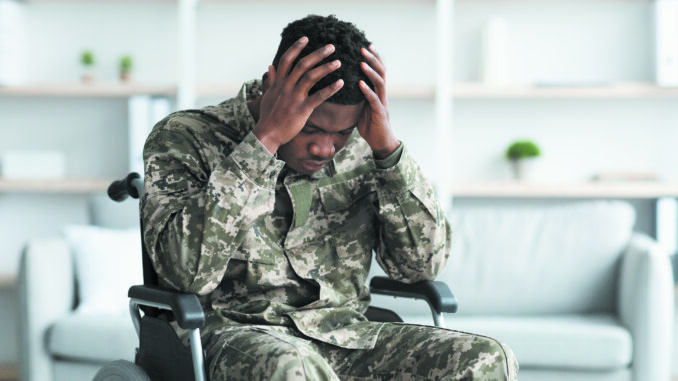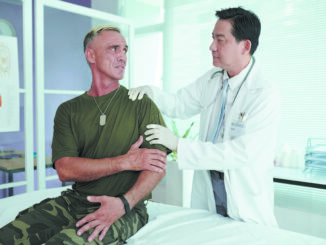
Camp Pendleton’s Intrepid Spirit Center offers help for service members with mild traumatic brain injuries
by Howard Hardee
Blasts from explosive devices and heavy artillery can cause a concussion or mild traumatic brain injury, but it is more likely that US military personnel experience potentially life-changing symptoms from less dramatic blows or jolts to the head or body.
“Believe it or not, even during Desert Storm, Desert Shield and the Global War on Terrorism, most of the traumatic brain injuries that people experienced were not combat-related,” says Dr. Clint Pearman, who served in the US Marine Corps for more than 30 years before becoming a Certified Brain Injury Specialist and Trainer (CBIST). While no longer with the Intrepid Spirit Center, Pearman still maintains his CBIST credentials and still teaches. He says only about 20% of TBI’s are from combat. Car accidents and military training exercises are more likely causes.
Pearman left the Marines in 2006 and started teaching people about TBIs several years later, during the infancy of the medical establishment’s understanding of sensitive brain circuitry. Following the Gulf War and the War on Terrorism, the US Department of Defense realized that it needed to direct more resources toward service members experiencing lingering—and sometimes debilitating—effects from head injuries.
“Many specialists in the field of mild traumatic brain injuries may be found at the Intrepid Spirit Center, so it’s like a one-stop shop.”
Clint Pearman, PsyD., Certified Brain Injury Specialist and Trainer
“In 2008, Congress approved the National Defense Authorization Act, and this eventually led to the building of the Intrepid Spirit Center facilities at several military installations. These centers specialize in the treatment and rehabilitation of mild traumatic brain injuries” Pearman says.
Staffed by personnel from the Naval Hospital Camp Pendleton, the $12.5 million Intrepid Spirit Center opened in 2018. At the time, Pearman was a contract employee with the Defense Health Agency as a Regional Education Coordinator. “My role was to provide traumatic brain injury education, training and resources first of all to military medical personnel, then service members and family members.
One of several such facilities in the US, the Intrepid Spirit Center at Camp Pendleton has multiple specialists on-site, including psychiatrists, psychologists, neuroscientists, occupational therapists, counselors, clinical social workers with specialties such as cognitive behavioral therapy—and even audiologists, as TBIs often interfere with hearing abilities.
“Many specialists in the field of mild traumatic brain injuries may be found at the Intrepid Spirit Center, so it’s like a one-stop shop,” Pearman says.
The program is designed that way because TBIs can present in myriad ways. A patient living with a TBI may forget how to work a microwave, or may consume unhealthy amounts of alcohol, or experience a severe loss of balance. Anger issues and behavioral changes are also common symptoms.
Intrepid Spirit Center measures the progress of the active service members who qualify for the program by looking for improvements in to include memory, balance and behavior before and after treatment, with the ultimate goal of supporting their mental and emotional well-being.
“Let’s say the person is having emotional issues,” Pearman says. “There are tests that the cognitive behavioral therapists can provide, and then go back and re-evaluate after the training is over to find out if the person got better.”
More information about Intrepid Spirit Centers can be found at www.fallenheroesfund.org/intrepid-spirit.



